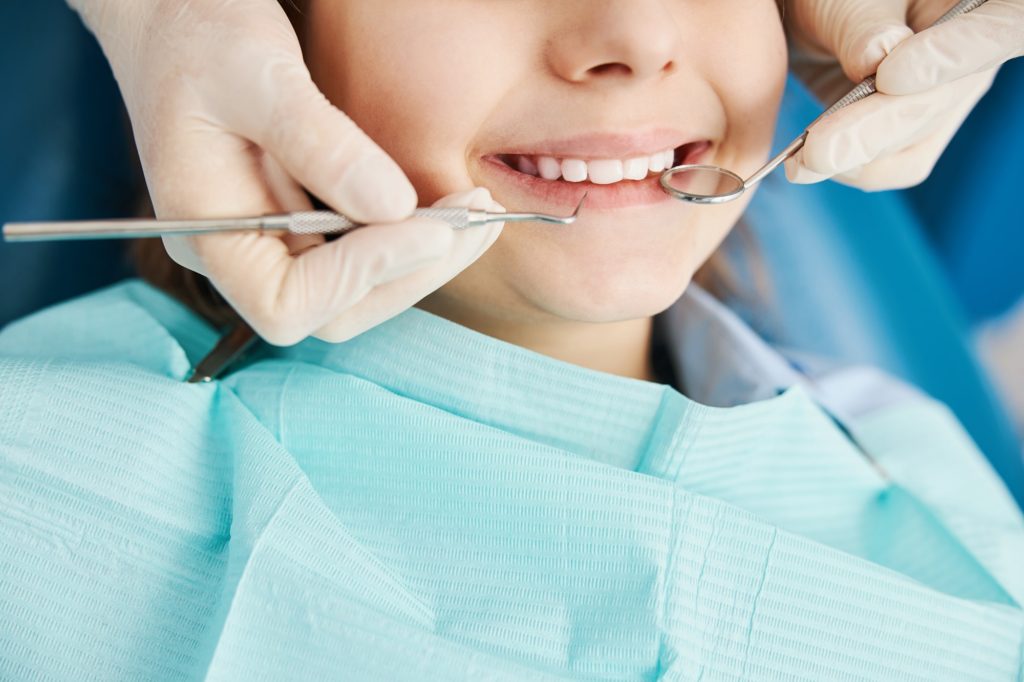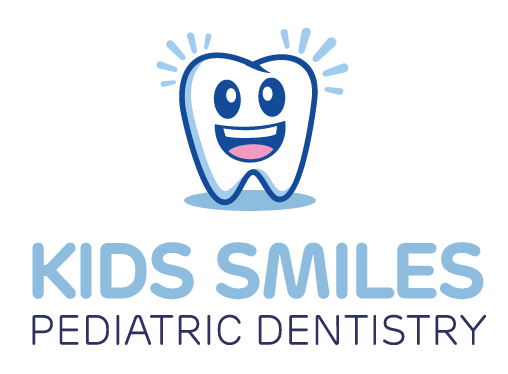Sensitive Teeth Treatment
Dr. Kelly Jobe | Pediatric Dentist | St. Louis, MO
Sensitive Teeth Treatment
We see it all the time. You teach your child healthy dental habits like brushing and flossing, you bring them in regularly for cleanings…but they still complain of having sensitive teeth.
Or, they say they don’t like brushing their teeth, and you eventually realize it’s because it causes them pain. You obviously don’t want them to be in pain, so what’s the deal? Well, this is a pretty common problem in kids so don’t feel defeated.
There are several reasons why your child might be experiencing sensitive teeth. A pediatric dentist will make sure they’re:
- Following your brushing and flossing instructions, and not skipping
- Brushing twice a day for at least two minutes a day
- Brushing at a 45 degree angle on the front, back and top of their teeth
Even if your child does all of this perfectly, they still might get sensitive teeth. In that case, there might be tooth decay (cavities) or they may need a toothpaste specific for sensitivity.
And that’s nothing to be ashamed of! Nearly 4 million preschoolers have some form of tooth decay, and the CDC reports that 20% of kids aged 5-11 have at least one decayed tooth. In fact, cavities are the most common infectious disease in children.

How do you get rid of sensitive teeth in children?
So now you know that your child’s sensitive teeth might be caused by tooth decay, and that it’s a common problem in children – So what do you do now?
The most common treatment for sensitive teeth in children is a filling. That’s because fillings are the best, easiest and most cost-effective way to fix small to moderate size cavities, and prevent tooth decay from spreading. Taking your child in for regular cleanings every 6 months will give us the chance to identify whether there is tooth decay, and whether a filling is needed.
Dental fillings for kids are a very common procedure that starts with a discussion and preparation. If necessary, local anesthetic will be provided. Then, the dentist removes the cavity and fills it with a tooth-colored composite material. Modern dental fillings are easy to place, incredibly durable and inexpensive.
And don’t worry – Our dentists and staff are experienced in gently guiding your child through the process, calming any frazzled nerves!
Do children’s cavities need to be filled?
As a parent, you might be wondering if fillings are a waste of time. Baby teeth are going to fall out anyway, right?
But there is more to consider. No matter your child’s age, getting cavities filled quickly is vital for their oral health. The only exception is if the tooth is projected to fall out within 6 to 12 months.
Not only does filling a cavity save a decaying tooth, it also stops tooth decay from spreading and helps permanent teeth form correctly in the future. This is because baby teeth serve as a guide for permanent teeth to erupt in their correct place. When baby teeth fall out prematurely from decay, your child’s permanent teeth can become misaligned and misshapen. Decay in baby teeth can still cause pain, infection, swelling and loss of confidence when smiling. Dental decay is also one of the most common reasons kids miss school and adults miss work.
It’s also important to remember that baby teeth still help a child chew, as well as speak correctly. Plus if your child is in pain from sensitive teeth, it’s best to get a filling quickly to relieve that pain.
Please visit our Fillings page to learn more about the procedure.
Other treatments for sensitive teeth in children
Besides fillings, another treatment for sensitive teeth in children include fluoride treatments. Many times, cavities can be prevented by the fluoride present in drinking water, as well using a fluoride toothpaste. This is because fluoride is proven to strengthen teeth and fight plaque, preventing future decay.
But, many times there isn’t enough fluoride in drinking water and fluoride toothpaste to fully prevent tooth decay. And most of the time, fluoride toothpaste doesn’t reach every nook and cranny in your child’s teeth.
That’s when fluoride treatments come in. Fluoride treatments have a higher concentration of fluoride, not only treating the tooth decay that causes sensitive teeth but effectively preventing future decay as well.
Sealants might also be used to prevent future decay and sensitivity, especially in a child’s adult teeth.
Important note: If your child is under 12, it is not recommended that your child use toothpaste for sensitive teeth.
Questions
If your child has complaints about teeth sensitivity, give us a call! Dr. Kelly Jobe and her team of pediatric dental specialists are the best in St. Louis, MO.
What Our Patients Say
Dr. Kelly Jobe & her staff are passionate about providing the best pediatric dental care in St. Louis, MO!
Stay connected with Kids Smiles
Stay connected with Kids Smiles
Quick Links
Contact Info
-
Kids Smiles Pediatric Dentistry
9735 Landmark Parkway Dr.
Suite #16 St. Louis, MO 63127 - (314) 270-5817
- info@kidssmilesdentist.com
© Copyright Kids Smiles Pediatric Dentistry. All rights reserved. Privacy Policy.

